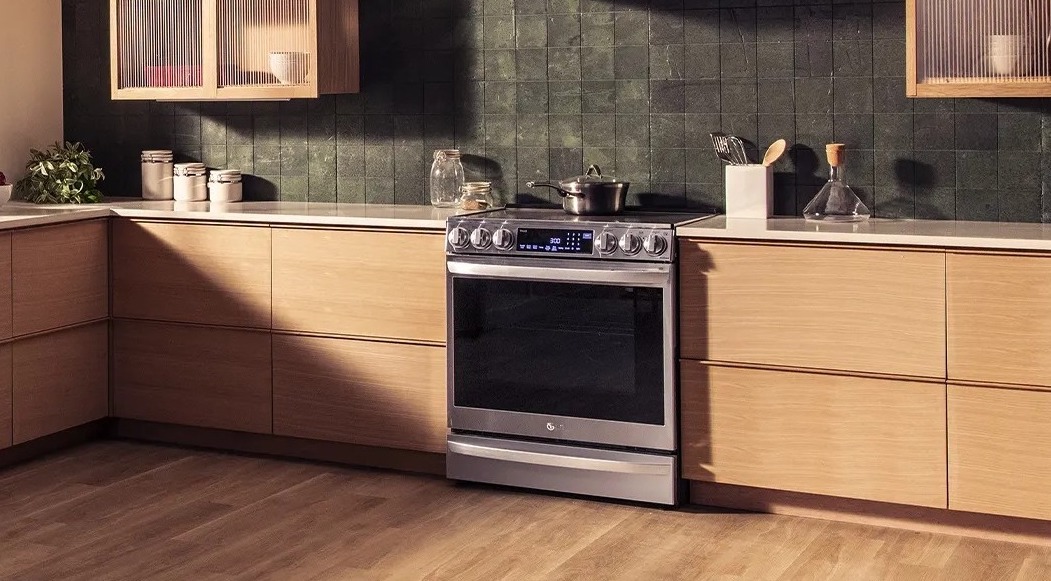
When I realized my house, a 100-year-old home, was already set up with a gas line, the decisions began about whether to go with electric vs gas stoves. There are definite advantages with both, and things to consider either way. There are cooking advantages with a gas stove, for example, but then you’re also dealing with open flame, which can be worrisome for parents with young children. Nonetheless, families have been using gas stoves for centuries. But electric provides some interesting pluses, too.
Eventually, we decided on a dual fuel oven that has gas burners on the stovetop and an electric oven on the bottom. It has worked well for the last few years, and I’m quite happy with the best of both worlds. If you’re trying to decide which way to go, however, either for a new room or an upgrade, it’s important to look at the pros and cons of each.
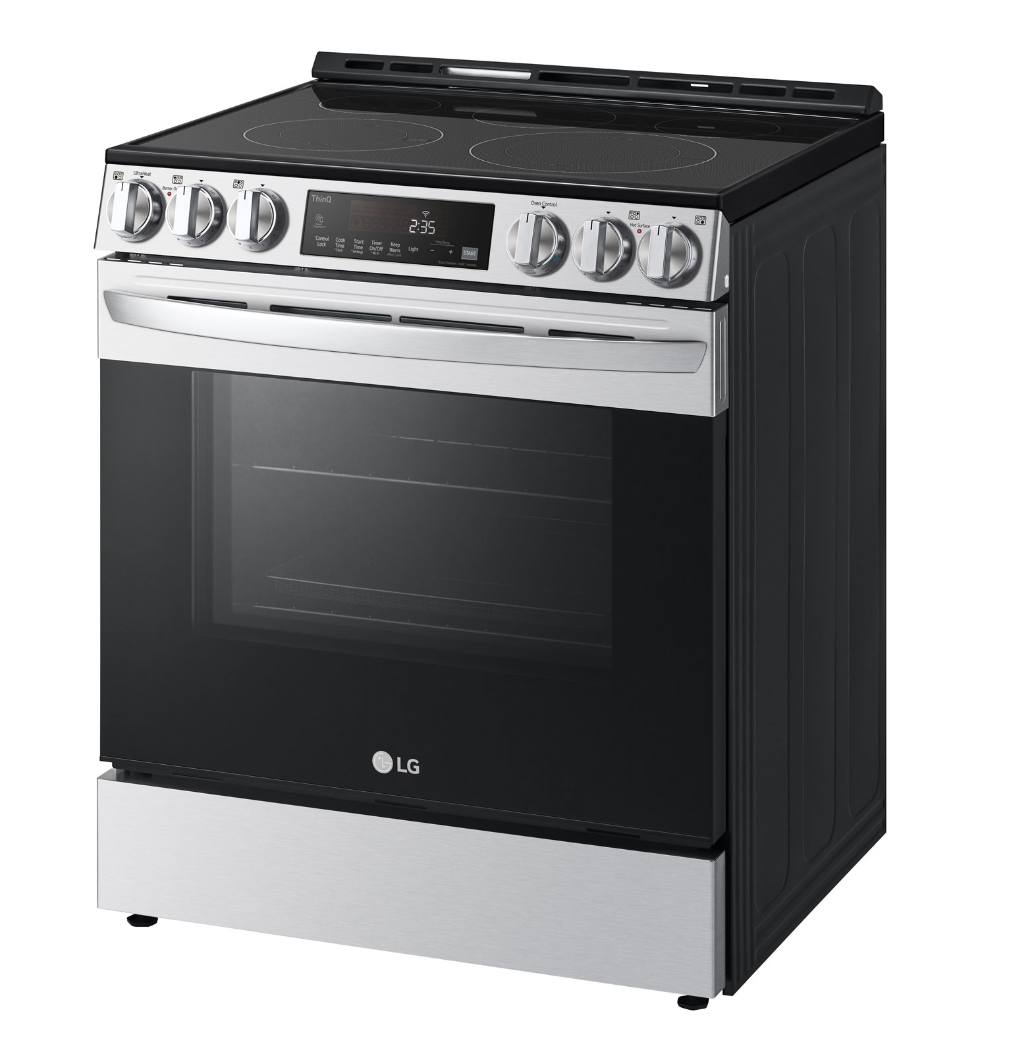 What is the difference between an electric stove and a gas stove?
What is the difference between an electric stove and a gas stove?
First, it’s important to break down what defines each type, and how they work.
An electric stove runs off the home grid, plugging into a wall outlet like any other large appliance. You’ll usually need a 250V outlet versus the standard 120V, and most houses will have that at the ready in the kitchen.
A gas stove, on the other hand, needs an existing natural gas line or propane hook up in the house in order to gain its power. They usually do have electric ignition systems, however, which means in the event of a power outage, the stove won’t go on. You could, however, theoretically light the burner with a match if necessary. It uses the same gas that’s also used to heat your home. It’s important with both types to have proper air ventilation, but especially so with a gas stove.
You can get both types as either freestanding or slide-in, depending on your kitchen design and where you want to put it. The cost of the actual appliance is similar for both gas and electric ovens, though factors like brand and other features make them both available at a wide range of price points.
There is, it’s worth mentioning, the third category and the one I own: dual fuel ranges. These include a gas cooktop along with an electric oven, providing the best of both worlds.
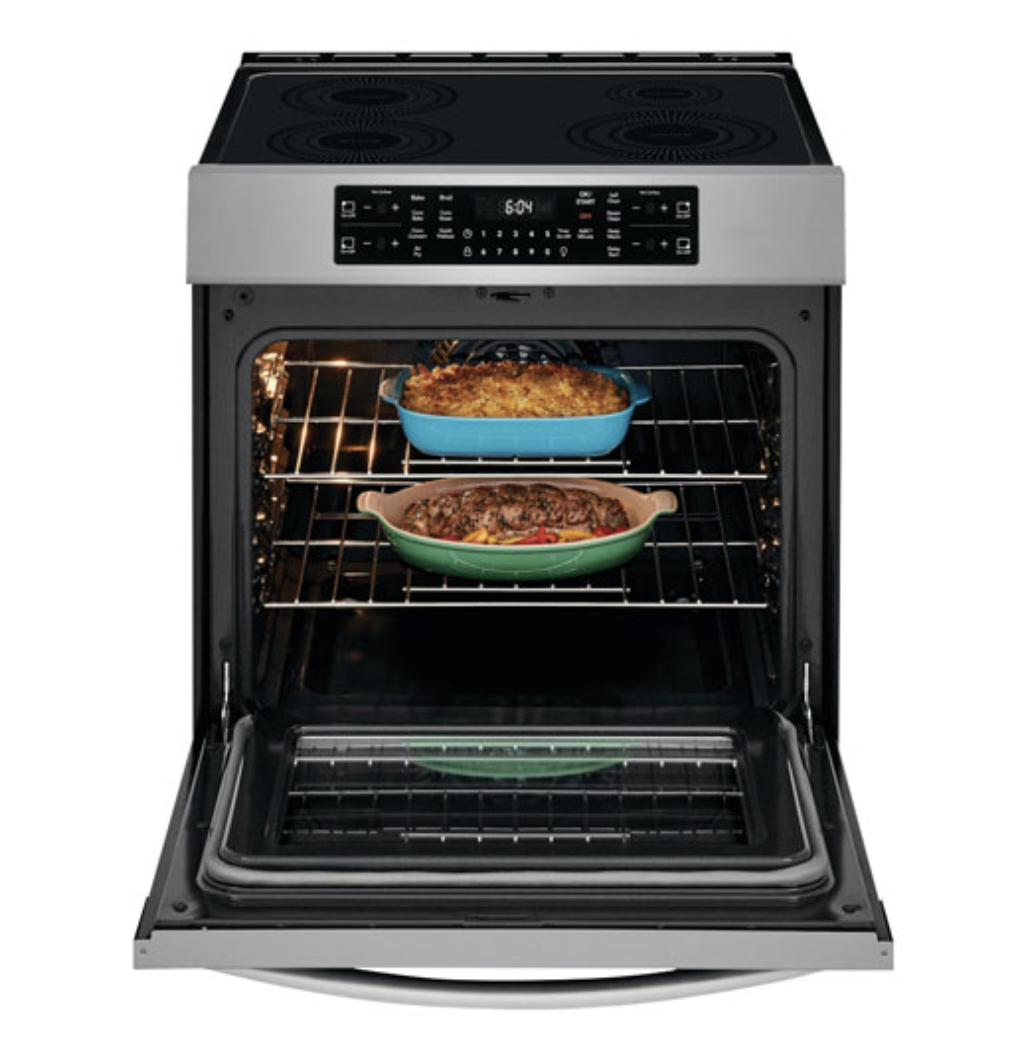 Advantages with electric stoves
Advantages with electric stoves
There are several reasons why people opt for electric over gas stoves.
Easier to set up
An electric stove is the easier of the two to set up—you can buy a new stove, and have it up and running instantly. To operate it, you simply push a knob or turn a dial and it can heat up fairly quickly.
Easier to clean
Especially when you’re looking at electric stoves with induction cooktops, they tend to be much easier to clean. The smooth top or flat glass plane can be wiped down with a cloth or sponge. By contrast, a gas stove has raised burners that you can remove to clean underneath, but it will likely take a bit more time.
Fewer operating issues
While any type of stove can encounter an issue down the line, with an electric stove, you don’t have to worry about issues like a clogged fuel line or defective igniters.
Can easily set temperature
The heat is distributed evenly across the various electric burners. Because the heat relates to a number on a dial, you can figure out the specific temperature you need for a cook, and tap into it the next time without having to gauge by the size of a flame, for example.
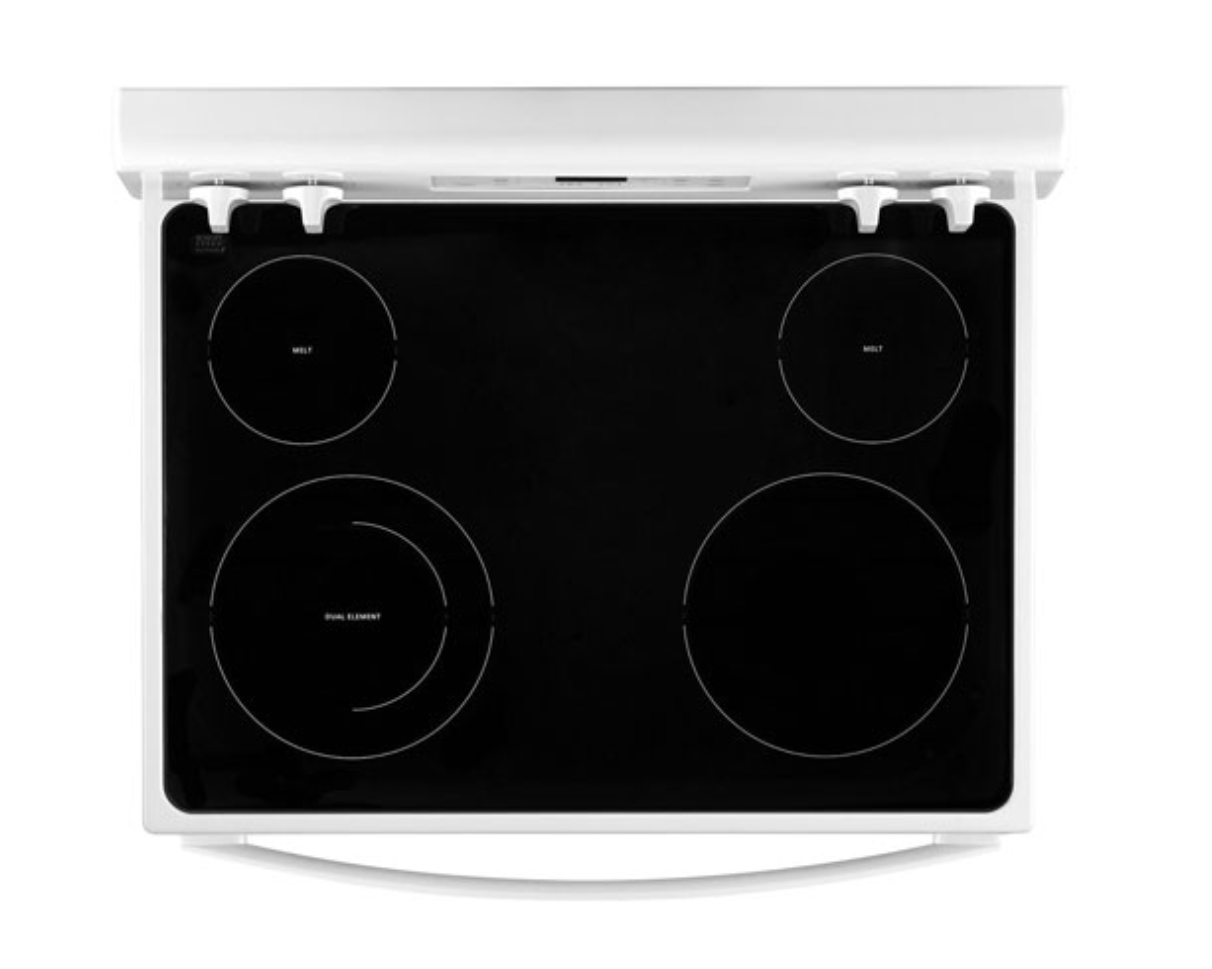 Even oven heat distribution
Even oven heat distribution
When it comes to the oven, an electric one provides a drier, more evenly distributed heat that makes them better for roasting or baking.
Can be more durable
Electric stoves can be more durable and stable, able to fully support even the largest pots and pans for your massive batch of homemade tomato sauce or big pot of hearty soup. You won’t need to worry about properly balancing the cookware, which makes them ideal for less advanced or new cooks.
Plenty of style, placement options
There are lots of electric stove options from which to choose, available in a variety of shapes, sizes, types, finishes, and even colours. They also come with different cooktop surfaces. They’re also versatile in that you can install them pretty much anywhere in your kitchen (or basement, for those who like to have second stoves), as long as there’s an appropriate AC outlet and proper ventilation nearby. Because they are essentially plug-and-play, you won’t have to worry about costs for set-up.
Safer to use
Arguably one of the biggest advantages with an electric stove is that they are safer to use, since they operate with burners or burner surfaces that heat up versus open flames. This can be a dealbreaker for families with young children or toddlers who are prone to fidget with knobs and buttons, and put their fingers where they don’t belong.
Extra storage space
Usually electric stoves have storage space at the bottom that can be used for keeping cooked dishes warm, or for storing cookware like baking trays. (Though some gas stoves have this as well.)
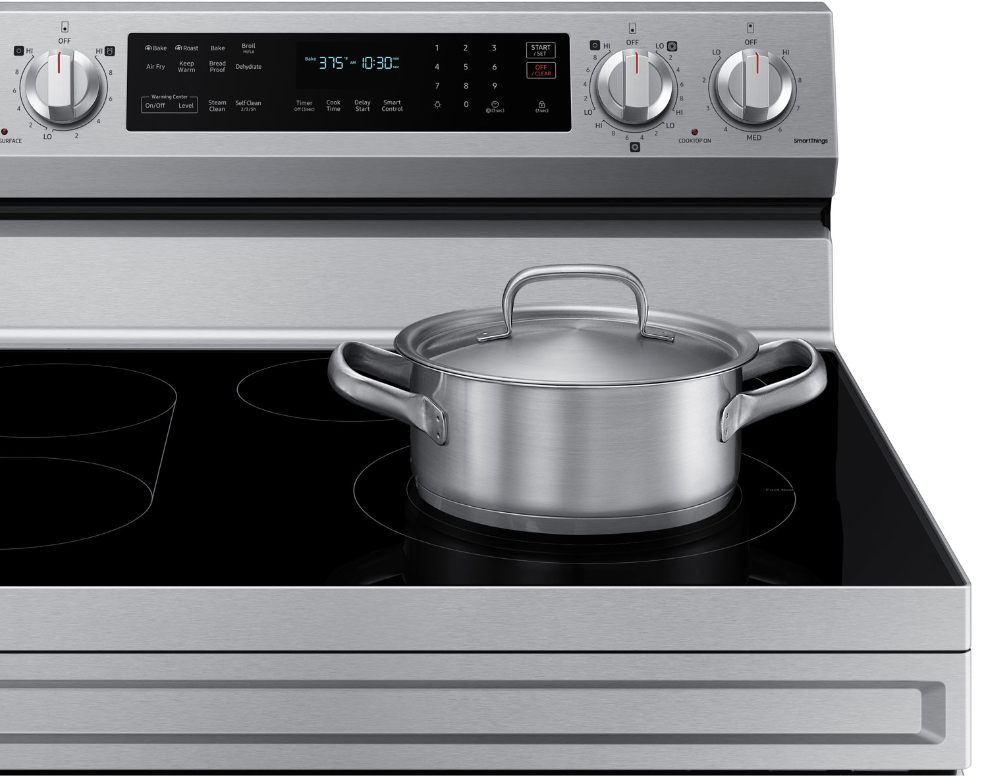 Disadvantages with electric stoves
Disadvantages with electric stoves
Of course along with the great ease of setting up and using electric stoves comes some disadvantages.
Can be more expensive to run
They can be more expensive to use since you’re tapping into the electric grid, and thus contribute to your electricity bill every time you turn it on. This, of course, will depend on where you live and how electricity costs compare to that of natural gas.
Can’t use in a power outage
If there’s a power outage, you can still technically use a gas stove (though the electric igniter won’t work), whereas an electric stove will be rendered useless. This might not be an issue for most—there’s always take-out, after all. But if you live in a regions where power outages are common, such as up north in cottage country, you might be better off with gas.
Glass tops are less durable
The glass top surfaces of many electric stoves certainly look nicer and are easier to clean. But they can also be less durable than cast iron gas stove tops. It can also stain more easily.
Heats up more slowly
Busy families might appreciate that gas stoves generally heat up to your desired temperature much more quickly than an electric stove. If you’ve ever stood by an electric stove waiting impatiently for a pot of water to boil so you can get some pasta ready for the kids, you know how frustrating this can be.
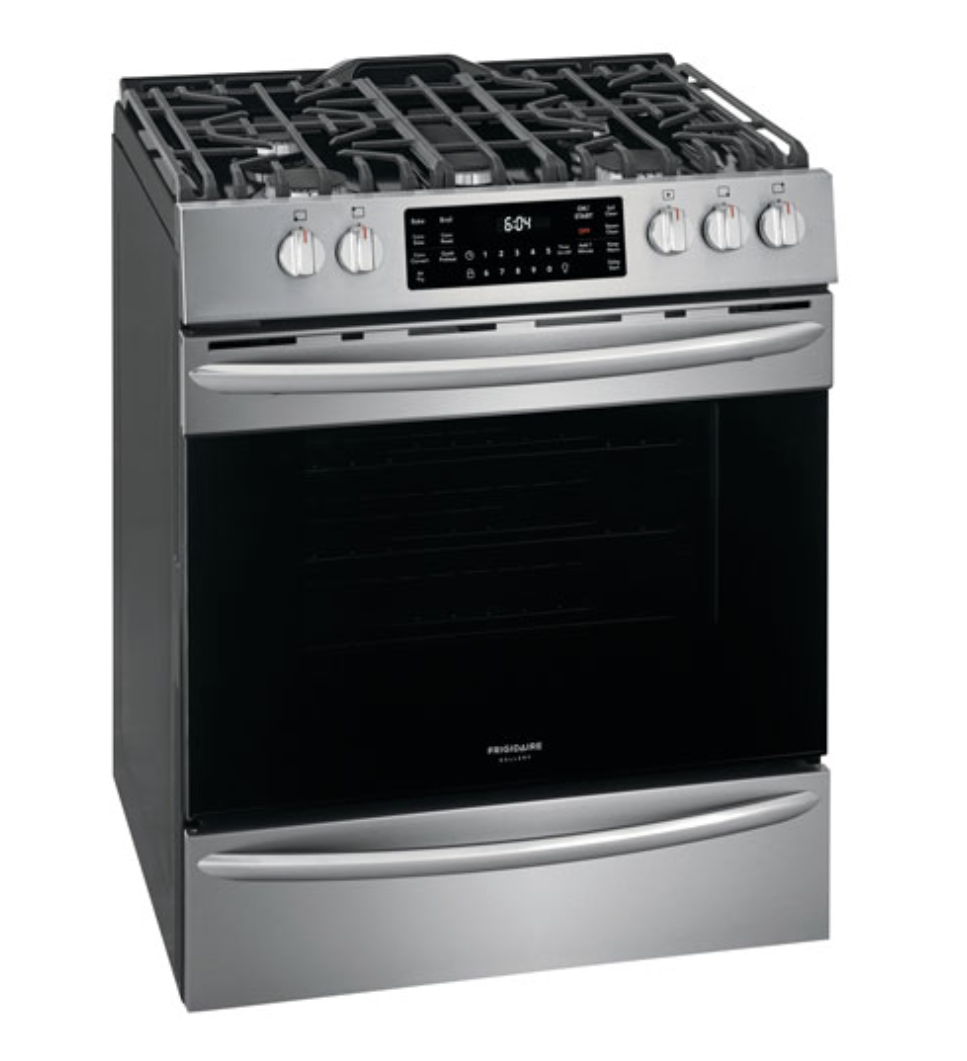 Advantages of gas stoves
Advantages of gas stoves
Gas stoves, meanwhile, have their own advantages worth considering that might sway you towards this type instead.
Heats up more quickly
As noted, gas stoves can heat up much more quickly, and thus cook food faster. Once you turn on a gas stove burner, you get instant heat through an open flame—there’s no waiting for it to heat up to the right temperature, and you can adjust the flame so that you get the exact right amount of heat that you need. A gas oven heats up quickly as well, which can help speed up cooking.
More precise control
Which leads to the next point: you can also get more precise control since the flames spread along the bottom and sides of a pan, providing a more even, uniform cook. You might find with a large pan on an electric stove, for example, that meat or fish placed near the centre cooks faster and better than food positioned near the edges. Anyone who barbecues at home or at the cottage or campsite over an open flame knows how great the process can be, and how it can add flavour and texture to the cook.
Additional cook options
You have additional options with gas stoves that aren’t available with electric stoves, such as the ability to char and toast food, like peppers; as well as flambé sauces for a yummy dessert. There’s a reason, after all, that most professional kitchens use gas stoves.
Potentially lower operating cost
Gas stoves can offer a lower operating cost, for a number of reasons, especially if you are already paying for natural gas. Gas, as noted, typically costs anywhere from 10-30% less than electricity. While these ovens might still use some electricity to run things like the clock, lights, and igniter, it’s likely negligible, at least in comparison to an electric stove. What’s more, since food can cook faster, you’re using the stove for less time. This can also be handy for homes that don’t have air conditioning, and welcome not having extra heat distributing through the kitchen during the hot summer months.
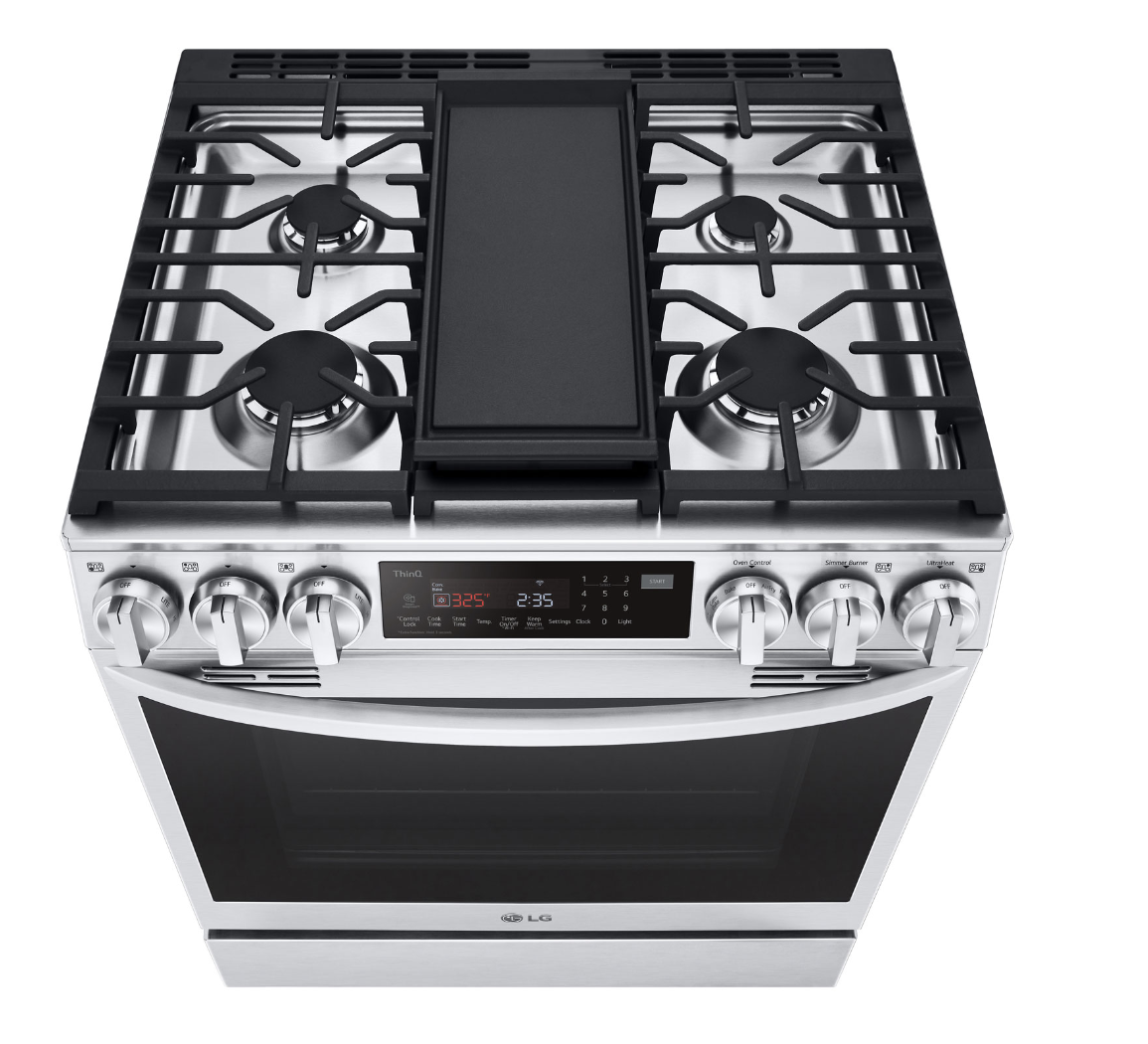 You’ll know if you forgot to turn it off
You’ll know if you forgot to turn it off
Because the flame is visible, you know instantly if you forgot to turn off the stove, which can be a lifesaver for forgetful folks. How many times, after all, have you left the house and questioned whether you left the burner on only to have to drive back to check? It’s pretty hard to forget when you can see a large, bright flame burning, after all!
Disadvantages of gas stoves
It’s important to consider every aspect of owning a gas stove before opting for this type.
Open flames pose concerns
Open flames are great, but do pose concerns. It can be more dangerous, particularly if you have children or pets in the house. You also need to be mindful never to leave any flammable items nearby. I can confidently say, however, that I have not had any issues since owning mine. My 11-year-old knows not to turn the knobs unless he is being supervised and has permission. We are mindful to keep things like paper towels away from the burners and use silicone oven gloves. With the right mindset and precautions, you’ll find your worries might be unfounded.
Gas can leak
Unlike electricity, gas can leak, and if it builds up, it can be toxic. This is a “what-if” scenario that could occur at any time. It’s important, especially with a gas stove, that you 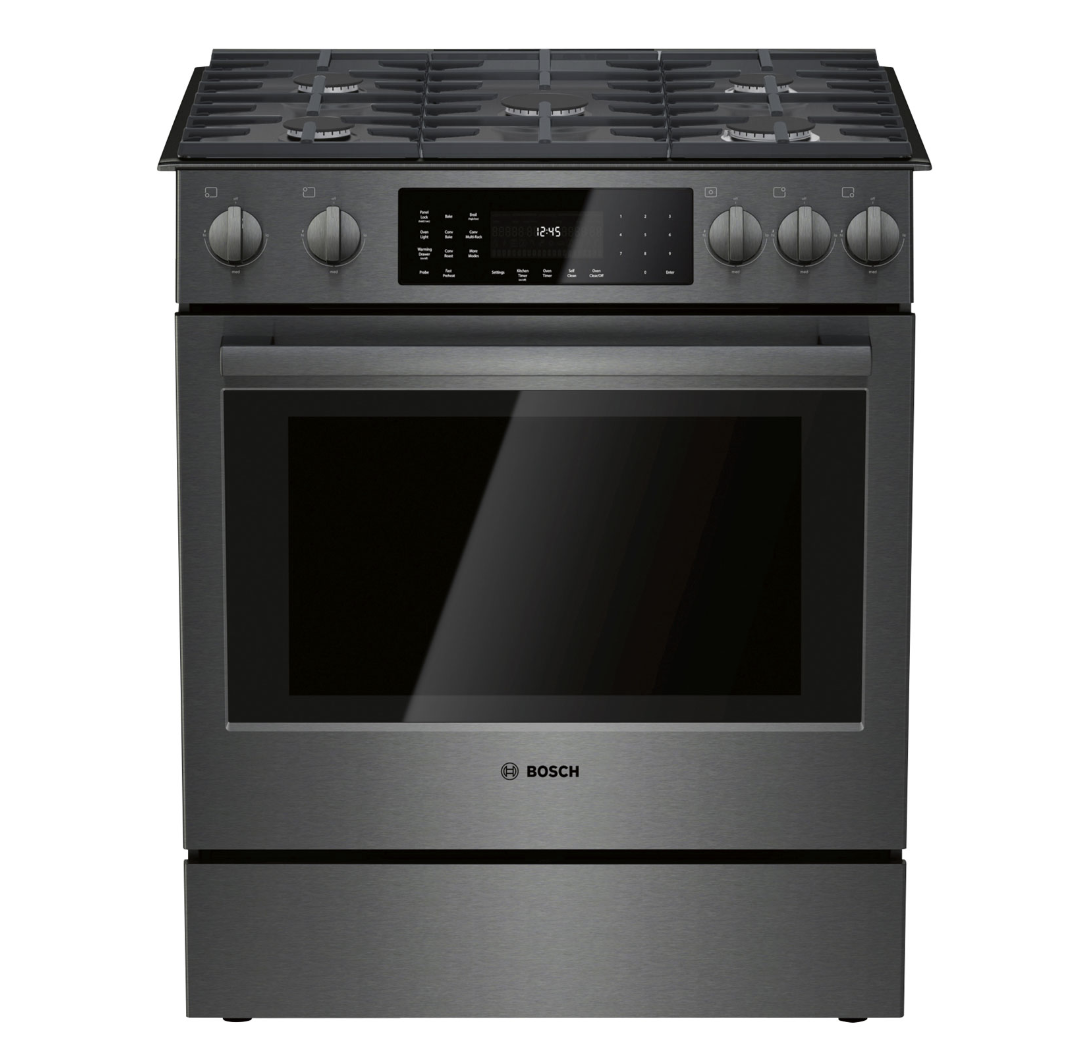 have a smoke alarm and Co2 monitor in your home with working batteries inside. It’s a good idea to consider an air quality monitor as well.
have a smoke alarm and Co2 monitor in your home with working batteries inside. It’s a good idea to consider an air quality monitor as well.
Set up is more arduous
As noted, set-up is not as simple and quick, and thus can be more expensive when you factor in the cost of the stove itself, as well as what it costs to have someone come run the gas line to it. If your set-up uses a propane tank, you will need to buy or rent one. And then there are added costs and maintenance requirements related to having it serviced as well as re-fuelled on a regular basis, depending on how much you use it.
Creates humid heat
The oven gives off moisture, which creates more of a humid heat, which can cause unwanted crisping and browning of baked items. And while items do heat up more quickly, the temperature can also fluctuate more and create hot spots that can impact your cooking.
Requires a gas line
More of a requirement than a disadvantage, a gas oven requires a gas line to be set up and ready to use. Some remote areas and homes might not even have gas lines, which makes gas stoves out of the realm of possibility to begin with.
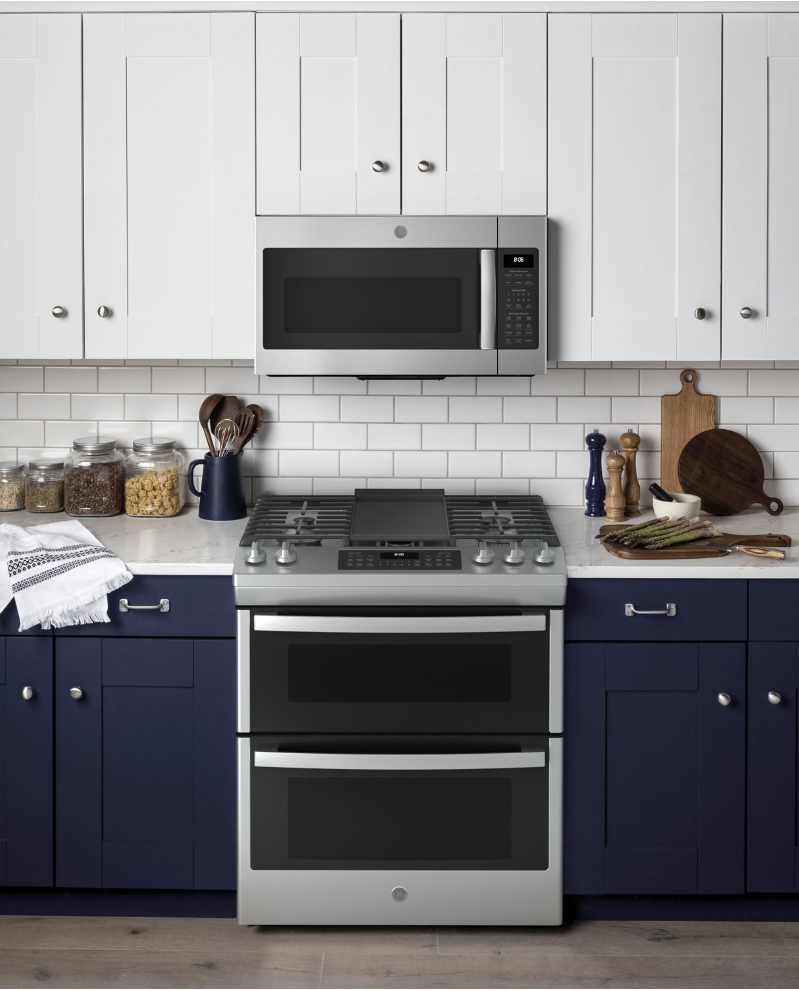 Bottom line about electric vs. gas stoves
Bottom line about electric vs. gas stoves
After much research into electric versus gas stoves, I made the decision to go the dual fuel route. Even with the installation cost of having someone come in to run the line, I can’t deny the ability to cook faster and better. I’m an avid cook and appreciate all the cooking advantages the gas stovetop provides; from being able to cook in a hurry to tweaking the temperature perfectly whether I’m searing a steak or simmering a sauce.
But I’m still a fan of electric stoves, and the ease of using them. I love the added benefits the latest stoves in this space provide as well, from convection cooking options to even built-in air fryers.
The choice really comes down to preference; you can’t go wrong with either option.
Check out a wide selection of both electric and gas stoves at Best Buy Online.
The post Pros and cons of electric and gas stoves appeared first on Best Buy Blog.
